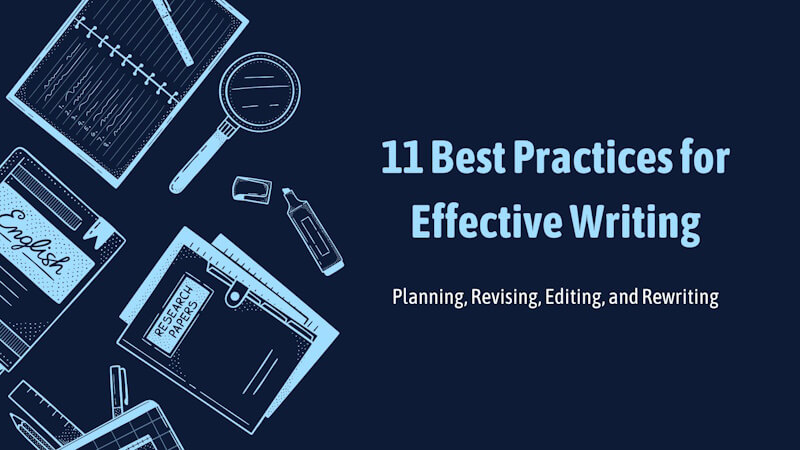11 Best Practices for Effective Writing

While it’s always good to be creative and innovative to the utmost in all types of writing (especially blogging), you will also do well to remember that there are several writing standards (or best practices) that you should conform to.
These 11 practices detailed here may not apply to every single industry/niche, but implementing the majority of them will greatly benefit your overall writing.
1. Use Images
Pictures speak a thousand words! Don’t be afraid to frequently insert images into your post where they would do better than any line of text.
If you find the whole image finding and crediting process a bit daunting, then be sure to check out this quick ‘n’ easy Writtent Academy guide.
2. Don’t be Afraid to be Controversial
I’m sure you’ve all heard before that if you try to please everybody, you’ll end up pleasing no one.
Don’t dumb down your blog posts into complete objectivity. Take a stance on a topic, and stay true to it (no matter what hot-headed commentators say).
3. Infuse Personality into Posts
Blogging is virtual. It’s not like a speech, where the speaker can put in sarcasm, personality, and other speaking techniques as they see fit.
With blogging, you have to infuse personality into your posts if you want any chance of getting return readers.
4. Find and Stick to a Voice
Once you’ve established your personality in a blog post, you’ll find that you will also have a specific voice. Your voice might come across as soft-spoken, or it might be aggressive. But whatever it is, remember that it is your true voice. Never deviate from it.
5. Be Consistent with Your Niche
If you manage a blog about pet care, it’s common sense that you shouldn’t start writing about high-performance sports car engines.
Be consistent with your niche. Don’t try to encompass everything that there is under the sun into one little blog.
6. Edit & Reedit

Ernest Hemingway once said: “The first draft of anything is trash” (well, actually, he used stronger language but “trash” suits this blog post just fine).
It’s a plain ‘n’ simple truth. You will never nail a blog post the first time you put in on paper. That’s where editing and re-editing come in.
7. Respect Your Readers
When you write, respect your readers. Respect their morals, their standards, and their knowledge of the subject.
If your target audience is generally opposed to cussing, then don’t use swear words in your post. If your target audience is already somewhat learned in the topic you’re writing about, then don’t write on a newbie’s level.
8. Stay Readable
One of the biggest and most common mistakes there is in blogging is the use of “high” language and ten dollar words.
It’s a big no-no – when you blog, you should always try to aim for a 7th-8th grade reading level of 7th-8th.
9. Avoid Cliches
Cliches are just that – cliché. They’re boring, and they have absolutely no place in your blog post.
If you have one in there, either get rid of it in the editing stage or try to put a new, creative spin on it to make it more relevant to your blog post’s topic.
10. Think Outside the Box
Innovation and creativity is often the key to a blog post’s success. While you don’t need to go around rewriting the 10 commandments of blogging (well, not all of them at least), you should always try to put your own distinctive spin on the topic.
People have already read “normal” blog posts a thousand and one times. Try to do something new with your blogging talent.
11. Choose the Right Topic
No matter how good your actual writing is, your blog post is doomed to failure if you haven’t chosen the right topic. Some subjects just won’t fly in blog post. They won’t attract any traffic to your blog.
Make sure that the topics you choose for your posts are highly targeted to your niche and proven to generate traffic.
What do you think of these 11 writing best practices? Have you been following them lately in your own writing? Do you believe that one should be cut out, or another should be added? Voice your thoughts in the comments below!

Comments (0)